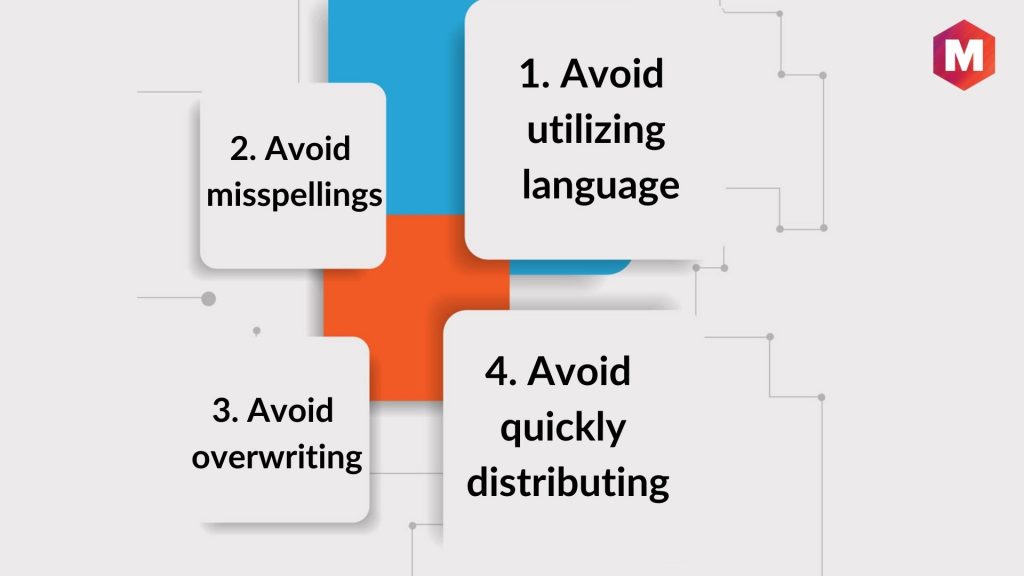
Types and Advantages of Written Communication in the Workplace

Written communication is the art of conveying a message through written words Explore the different types, advantages, and disadvantages of written communication, as well as effective strategies for achieving clarity, conciseness, and professionalism in your writing
Whenever you sit down to write, whether it's with a pen and paper or using your keyboard, you have an opportunity to effectively showcase and communicate your business. This can include marketing materials, emails, and various other types of content. With modern marketing techniques, your written communication can reach a broad and diverse audience.
In today's digital age, most businesses have some kind of online presence, whether it's a website, email system, blog, or social media account. As businesses continue to shift towards digital channels, written communication has become an essential tool for online marketing.
The ability to write well is crucial for establishing a strong online presence and building relationships with both current and potential customers. In this article, we will explore the world of written communication and provide guidance on developing effective writing skills. By mastering these skills and leveraging them in your business strategy, you can optimize your reach, generate leads, and increase conversions. Let's dive right in with our first tip.
Introduction to Effective Communication Skills
Throughout history, writing has been a fundamental means of communication, dating back to the earliest civilizations. From documenting information for future generations to expressing oneself more effectively, the art of letter writing has always been a powerful mode of communication. Over time, writing has evolved significantly.
Writing is now used as an extensive form of communication.
It has even developed into various types that can thus be used depending on the need.
The objective remains the same for everyone - to effectively convey their perspective and communicate their ideas with utmost clarity. In today's world, it is imperative to hone these skills and possess a strong grip over them.
What is the Written Communication?
Written communication encompasses any form of interaction that involves the use of written words. It is one of the two fundamental types of communication, the other being oral communication. Although verbal communication can be effective, written communication is generally regarded as more formal in most circumstances.
Written communication has become a crucial aspect of modern business operations, with most companies relying on it for various purposes. Some commonly used and effective forms of written communication in the business world include memos, bulletins, electronic mails, job descriptions, reports, and employee manuals.
What are the different types of written communication?
1. Transactional Written Communication
Written communication is essential for any business, as it serves different purposes. However, these purposes can be grouped into three categories. These categories include:
1. Transactional Written Communication
Transactional written communication involves sending a message to elicit a response from the reader. This can include requesting a meeting, asking for a favor, or seeking a quick clarification. The sender has the freedom to select the tone and voice of the message, as they will be receiving a response in return. Online mediums are often the most effective for such communication, as they offer speed and convenience.
2. Informational Written Communication Skills
This type of communication involves the sender conveying a message that is intended to benefit the receiver. Unlike other forms of communication, this method is less reliant on the reader's response, and typically does not require a reply unless the reader has questions or concerns.
It can be done through offline or online channels. Communication examples of this can be an email or a memo sent to an individual or a group.
3. Instructional Written Communication
The recipient of these messages must be able to follow them easily, so it's important to provide clear and comprehensive instructions. This means including all the necessary information and presenting it in a format that's easy to follow. Using a step-by-step approach and incorporating bullet points or numbered phrases can be particularly effective.
What are the advantages and disadvantages of written communication?
Written communication is a powerful mode of conveying messages that has been utilized for centuries. With advancements in technology, written communication has become even more prevalent and has revolutionized the way businesses interact with their audiences. Despite its numerous benefits, this form of communication also has its drawbacks. Here are some pros and cons of written communication.
Advantages:
There is no need to deliver the message in the spur of the moment immediately. It can be edited and revised several times before delivering it.
The recipient is given sufficient time to carefully read and evaluate the message before composing a response. Furthermore, this method facilitates the creation of a permanent record of the message and information exchange, which can be easily monitored and analyzed at a later time.
Disadvantages:
Instantaneous replies and feedbacks are not possible as it is in case of oral communication which sometimes leads to frustration and uncertainty in the business.
These messages take more time to compose as well as more effort and skills.
How to achieve effective written communication?
Effective written communication is made of five elements. These five essential skills are:
1. Conciseness
Conciseness is crucial in written communication. The objective is to convey your message to the reader in a clear and direct manner. Excessive verbiage without a clear point will not achieve the desired outcome.
2. Clarity
Writing with clarity is crucial in ensuring that your message is effectively communicated to your readers. Even if they do not fully comprehend your content, they will know the necessary questions to ask to gain a deeper understanding. To achieve clarity, utilize simple language and provide specific and comprehensive information.
3. Active voice
Using active voice in your writing is more straightforward and easier to understand than using passive voice. Therefore, it is recommended to opt for active voice whenever possible.
4. Tone
The tone of your writing is crucial, as it sets the emotional tone for the reader and can elicit specific reactions. It's important to match the tone with the relationship you have with your readers, whether it's formal or informal, friendly or professional.
For example, written communication in case of business must always be professional.
5. Grammar and Punctuation
Correct grammar and punctuation make the writing more appealing and prove your point more accurately.
Other tips and tricks that can be followed to improve written communications are:
You must know your goal and target audience before writing.
Include the details that are important to know.
You can make use of outlines to present a clear and well-organized report.
It is crucial to edit your work thoroughly.
In addition to these, let us now have a look upon some of the easy hacks of effective writing communication to improve your business skills-
4 Easy Hacks of Effective Written Communication
Solid written communication abilities are essential to channel your creativity and growth in your profession.
To create compelling written communication in today's business world, it's essential to be precise and concise. Here are four effective hacks to improve your business communication, whether it's a letter, email, memo, or any other form of content.
1) Choose the right stationery
To be highly impactful, your written communication in business is best channelized utilizing the right business stationery.
Your business letter should be written or printed on your company's letterhead, and the same applies to memos and other forms of communication. Additionally, when sending emails, it's important to include your company's logo in the message.
You should also utilize your discretion for incorporating other company details such as contact numbers, office address, and email address, and so on to your message.
2) Use simple language
To ensure effective written communication, it's best to steer clear of complex vocabulary. Instead, opt for simple words and concise sentences to convey your message clearly and succinctly. Reserve technical terms and jargon for when they are truly necessary, such as when discussing specialized topics or specific information. Overuse of capital letters can come across as shouting, so it's best to avoid typing in all caps in your written pieces.
3) Write a well organized/structured message
Crafting a well-organized message involves dividing it into three sections - introduction, body, and conclusion - with one paragraph dedicated to each segment. The introduction should clearly state the purpose of the communication to set the tone for the rest of the message.
In order to provide more substance to your article, it's important to include topic details in the body section and aim to keep the communication within a single page. To conclude your article, a summary and Call to Action (CTA) can be added, encouraging the reader to take a specific action such as contacting you via phone or email.
4) Always proofread
Effective written communication requires careful proofreading of your content. Take the time to read through your piece thoroughly and make use of proofreading tools to catch and correct any errors or mistakes. This attention to detail will improve the overall quality of your writing and enhance its impact.
Proofreading your written content is crucial for maintaining a professional image and avoiding spelling or grammar mistakes. This is especially important in business communication where trust-building with your audience is key. Additionally, it's important to be aware of what to avoid in your written content to ensure its effectiveness.
Here is a video byon Written Communication.
Things to Avoid in Professional Written Communication
1. Avoid utilizing language that can befuddle, obscure or insult the readers
To create effective written pieces, it's not only crucial to know what to include, but also what to avoid. Pay attention to these points of focus and avoidance:
- Don't use excessive jargon or technical terms that your audience may not understand.
- Avoid using passive voice as it can make your writing less engaging.
- Steer clear of making unsupported claims or false statements.
- Don't use too many words or phrases that can make your writing sound repetitive or monotonous.
- Lastly, avoid any grammatical errors or typos that can undermine the credibility of your content.
Remember, creating quality content is more than just putting words on paper. It's about crafting a message that resonates with your audience and leaves a lasting impression.
Using simple and straightforward language in your writing can have a greater impact on your audience. It's important to steer clear of using slang, sarcasm, mockery, irreverence, and limit the use of jargon, technical phrases, or buzzwords.
You should come to your meaningful conclusions plainly and briefly, so don’t distract your reader with superfluously huge or improper words.
2. Avoid misspellings, lousy sentence structure, inadequate sentences, or long passages
It's surprising how many documents are shared and quickly dismissed due to basic grammar and writing mistakes. To avoid this, it's important to eliminate errors through spell checking, proofreading, and editing.
3. Avoid overwriting in your written pieces
While doing written communication, overwriting is a common issue that you should always avoid. You should utilize the words correctly, financially, and precisely.
When writing, it's important to keep in mind that your readers have limited time to spare, just like everyone else. This means your writing needs to be concise, clear, and engaging if you want to capture their attention and achieve positive results.
4. Avoid quickly distributing whatever you have written in an elevated enthusiastic state
When you write a piece in a heightened emotional state, aggravation, or anger, it is suggested to wait for at least 24 hrs before publishing that.
Final Thoughts about Written Communication!
It's important to exercise caution before hitting the publish button, no matter how tempting it may be. Take a moment to reflect and assess whether you'll still feel the same way about your writing the next day. Emotion management is a crucial aspect of effective written communication, so make sure to keep your feelings in check.Effective communication is crucial for achieving success, and it is important to use it purposefully. In today's professional settings, written communication has become increasingly popular due to its ability to create a less intimidating environment. By eliminating the need for face-to-face interaction, written communication allows individuals to carefully craft their message and minimize the risk of misunderstandings or conflicts.
Written communication is a versatile tool that can be utilized in both formal and informal settings. In today's world, it has become an indispensable part of our daily lives. Many companies offer writing classes to their employees to enhance their skills. The advantages of written communication are numerous, making it a powerful and sophisticated form of expression capable of conveying any desired effect or message.
Ensuring that you follow the aforementioned tips can significantly increase your chances of success in both your personal and professional life. Additionally, how crucial do you believe effective written communication is in today's business landscape?
NEXT
Visual Communication
PREV
Oral Communication
START
Types of Communication














